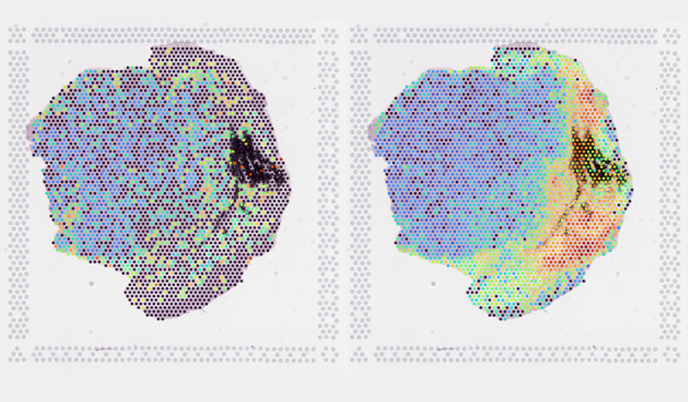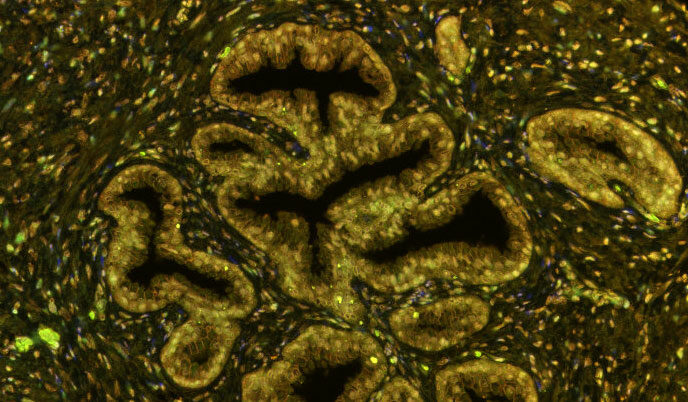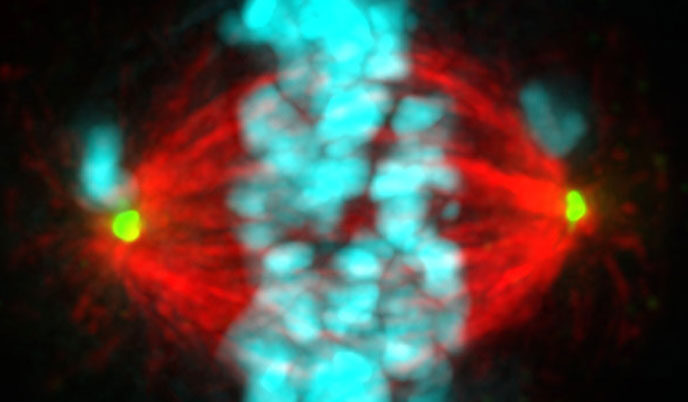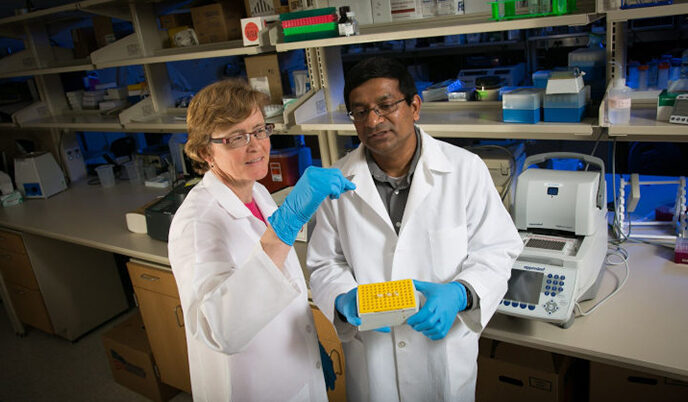
Dr. Nita Ahuja announced as next dean of the UW School of Medicine and Public Health
Nita Ahuja, M.D., M.B.A, F.A.C.S, a surgeon-scientist who has held top roles at some of the nation’s leading research universities and health systems, will lead the University of Wisconsin School of Medicine and Public Health and serve as the university’s next vice chancellor for medical affairs.

Mixed dose radiation enhances immune response to cancer
A new study in mice shows that delivering different doses of radiation to a tumor revs up the immune system and allows it to detect not only the treated tumor but distant tumors that were not irradiated. When mixed dose radiation is followed with immunotherapy drugs called immune checkpoint inhibitors, it makes the drugs more effective at killing cancer cells throughout the body than when radiation was delivered at a single dose level.

RISE-THRIVE initiative focuses on immunology and healthspan
The UW School of Medicine and Public Health will play a significant role in the newest area of focus for the Wisconsin Research, Innovation and Scholarly Excellence (RISE) initiative: RISE-THRIVE, aimed at advancing health and improving lives.

Murtaza named director of Center for Human Genomics and Precision Medicine
Dr. Muhammed Murtaza has become the next director of the Center for Human Genomics and Precision Medicine at the University of Wisconsin School of Medicine and Public Health.

Zachary Morris named chair of human oncology
Dr. Zachary Morris, a leading expert on innovative approaches to cancer therapy, will be the next chair of the University of Wisconsin School of Medicine and Public Health Department of Human Oncology effective June 2.

New Initiative for Theranostics and Particle Therapy launched
A key focus of the initiative will be translational research, or research that is designed to benefit human health. Investigators will assess how particle beam radiation may be effective to treat cancers that are difficult to treat using conventional radiation therapy, how diagnostic and treatment steps can be combined into a single step referred to as theranostics, and how radiation treatment plans can be personalized for each patient.

New study supports recommendation to begin mammogram screening at 40
Breast cancer screening every two years beginning at age 40 has the potential to reduce the number of women who die of breast cancer while minimizing the harms, according to a large study published today.

UW clinical trial tests new way to treat glioblastoma
A new clinical trial at UW Health | Carbone Cancer Center uses a personalized medicine method to try to teach the immune system to recognize and destroy glioblastoma tumors.

UW Carbone Cancer Center receives SPORE designation, federal grant to support prostate cancer research
University of Wisconsin Carbone Cancer Center will be designated as a Specialized Program of Research Excellence, or SPORE, by the National Cancer Institute (NCI) for research initiatives to advance new prostate cancer treatments.

UW study details how HPV may promote head and neck cancer
Cancer researchers have long known that the sexually transmitted human papillomavirus (HPV) is a leading cause of head and neck cancer and now a study from the University of Wisconsin School of Medicine and Public Health sheds light on how HPV turns healthy cells into cancer.

UW researchers looking for new ways to screen for ovarian cancer, earlier detection
A project began today at the UW–Madison Prevention Research Center that is focused on earlier detection of ovarian cancer.

Black patients in Wisconsin 50% less likely to be treated for pancreatic cancer
Black patients with pancreatic cancer have lower survival rates than white patients, and a new study suggests why: They are much less likely to receive life-extending treatments.